You are both seekers. What does spirituality mean to you? And in what ways does that manifest in your books?Haviva: I am a seeker. I have been for as long as I remember. But it became especially urgent when I was diagnosed at age sixteen with a degenerative genetic muscular disease; I felt abandoned by God and was looking desperately for order and control. I grew up Orthodox Jewish, so that system was the only one I had for meaning making, but that framework did not suit my free spirited soul. My spirit wanted to be free, to surrender to the mystery, but that was a terrifying notion. I spent many years looking for validation and answers outside myself, trying to contort myself to fit into the rigidity of traditional Judaism, until I realized this was spiritual bypass. I would only find inner peace if I healed my sacred wound, if I addressed my spiritual need for life to be fair. It’s about learning to surrender to the Universe, to What Is and Will Be, to the Flow of Life, not to be protected from suffering but to be held in your suffering.
You both live in Israel, and the reality in Israel features in your books, but Orna was born and raised in Israel and Haviva moved there only in her twenties. Do you think this affects your writing?Haviva: Yes, I do. One reason I wrote Hope Valley was to explore the idea of what it is like to move to Israel out of Zionist ideology only to find after moving there that the narrative you were told is only part of the story. That is what happened to Tikvah and is part of her struggle. This theme is also part of my memoir, since that is my reality as well. I am not living in a house that once belonged to Palestinians, and I do not have a diary hidden in my house written by a man in 1948. That is all in Hope Valley, and that is all fiction. I chose that scenario to heighten the tension and dramatize the conflict in this microcosmic way. But these are issues I, myself, struggle with. People who were born here into the conflict face this as well, but in a different way, because they did not pick up and move and choose to make this their home out of some kind of righteous mission. I did. And I do still believe that Jews have a right to be here. But so do Palestinians. And that is the challenge. How can we recognize each other’s narratives, acknowledge each other’s pain, and find a way to live here together in peace? Orna: I was born in Israel, just over a decade after the establishment of the state, so I was born into the conflict, a part of it, whether I wanted to be or not. The Palestinian Israeli conflict has always played a part in my life, looming ominously in the background. As a small child I was always told never to pick anything up off the ground, to beware of any object left unattended, etc. Later, it was me warning my kids. Be aware. Be vigilant. Pay attention to your surroundings, to unknown people, objects. Even buses were a no-no for many years. Since it has always been part of the background of my life, the conflict is also part of the scenery of my work, but just like I have never let myself be defined by it, my work is not defined by it either. I am not an activist and my writing is not a call for action, although it always tries to offer an optimistic, hopeful outlook. In reality, I live in Jaffa, a mixed city, striving for harmony and co-existence, the same aspects I try to stress in my writing. Towards the end of the novel, Lily discusses the conflict: “Every now and then violence erupts between them, as Allah and Hashem go at it once again. I don’t think it will ever end.” In my writing, I try to look at the good, at the unifying aspects instead of the differences. I believe it is only the individual who can make a difference, who can bring about change. Identity is a big theme in all three books. Can you expand on that? Haviva: In Hope Valley, both Tikvah and Ruby learn to stretch themselves beyond their cultural boundaries and connect on a basic human level. There is also a backstory of a love affair between Ruby’s father, Jamal, the father of the lost diary, and Marie, a Holocaust survivor who was hidden from the Nazis in a convent in Belgium and then taken to Palestine (which then became Israel) after the war. She struggles with her identity, as does Jamal, who has a Christian mother and a Muslim father. That is a big theme in the book. Mixed breeds. The dog, Cane, who is also a main character in the book, is also a mixed breed. Others are, too, but I do not want to give away the end. Suffice it to say, one message of the book is that we are all connected. In Dreaming Against the Current, identity also plays an important role, as it is on one level about my shedding of various constructed identities in order to discover my most pure, essential one, by listening to my soul. Orna: The Pink Balloon is an attempt to wake people up, to make them question who they really are. The book does this by challenging our concept of identity through the story of a young woman and a pink balloon. The pink balloon is a meditation technique the protagonist learned as a child, and is the only constant in her life, helping her to navigate between her assumed identities, as she moves through different continents, cultures, and religions. The question “Who am I?” reverberates throughout the book. Lily is born in Venice Beach, California to a Palestinian mother and an Israeli father. When they separate, she goes to live with her mother’s family in a conservative Palestinian community, where she becomes Lila and is raised as a Muslim. After her mother dies, her father takes her to Israel, where he has built himself a new life in an illegal settlement on the West Bank. Here she becomes Lia and converts to Judaism. When she realizes an arranged marriage is in the cards, she runs away to India, where she feels her parents’ as well as her own story, really began. She creates a new identity and calls herself Leela, as she embarks on a journey of discovery, bent on finally finding out who she really is. Forced by the events of her life to repeatedly construct a new identity, only to later deconstruct it, she finally realizes that she was never who she thought she was and is set free to be whoever and whatever she chooses to be. Why do you write? What do you want your writing to bring? Haviva: I write because I love it. I do not watch television. I read and write. I also love films, but I only watch them occasionally. Reading and writing are my fallback activities when I am not working as a spiritual companion, officiating ceremony at the mikveh (ritual immersion pool) I run on my kibbutz, swimming, walking in nature, or working with mine and other people’s dreams. That is, putting aside being with family and friends. I love the writing process. I find it spiritual. It is my favored form of expression. And it is also a process. I discover as I write. Things emerge. I don’t sit down with a definite plan. I sit down with an idea, a thought, an image, a scene, but it happens as I write. It’s magical. I feel a divine connection when I write. There are better days and worse days. Not every day feels so inspired. But when it does, it can be profound. It feels like I am spiritually aligned, doing what I am meant to be doing in this world. I also write to process my own feelings. And to send a message to the world, or at least to my readers. As much as I love the writing process in and of itself, I also write for others, not just myself. When people read my work and tell me how it touches them, that is definitely part of the reason I write. It’s not all of it, but it is a big part of it. Orna: Writing has always been my vehicle, my way of making sense of the world. It has always given me a perspective, a sense of order, a clarity. Those are the personal gifts writing has given me, and I’d like to use them wisely. Mostly I’d like my writing to present a different voice, a voice I feel is sorely lacking. Darkness has loomed large in Western literature, from Baudelaire’s Fleurs du mal, Eliot’s Wasteland and Conrad’s Heart of Darkness, just to name a few. And it’s true. The world is replete with cruelty and ugliness. But there is also a great light, a huge pillar of light marching besides the dark. And it is growing. It is growing by leaps and bounds as more and more people try to better themselves, choosing good over evil. Western literature has become focused on the black, threatening aspects of the world, neglecting the good sprouting up all around us. I’d like my writing to be a celebration, a small beacon reflecting and magnifying the light I see shining besides the dark. Visit Haviva Ner-David's author page and Orna Taub's author page to learn more about them and their books.
0 Comments
|
Bedazzled Ink AuthorsBlog posts from our authors. Archives
January 2023
Categories
All
|
Books & Imprints |
Information |
Contact |
Proudly powered by Weebly
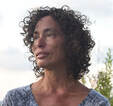
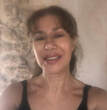
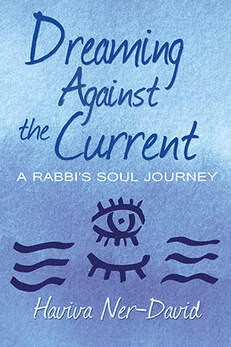
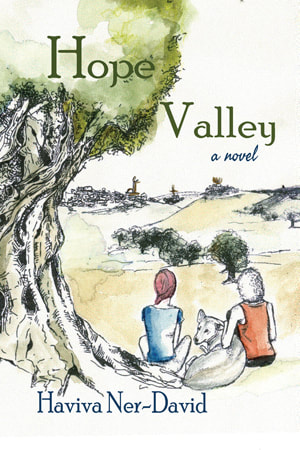
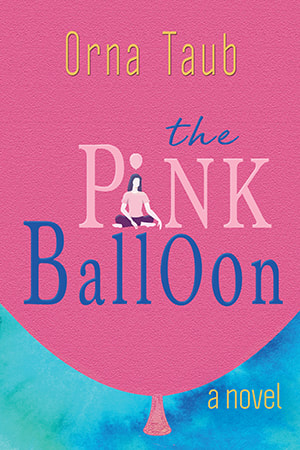
 RSS Feed
RSS Feed